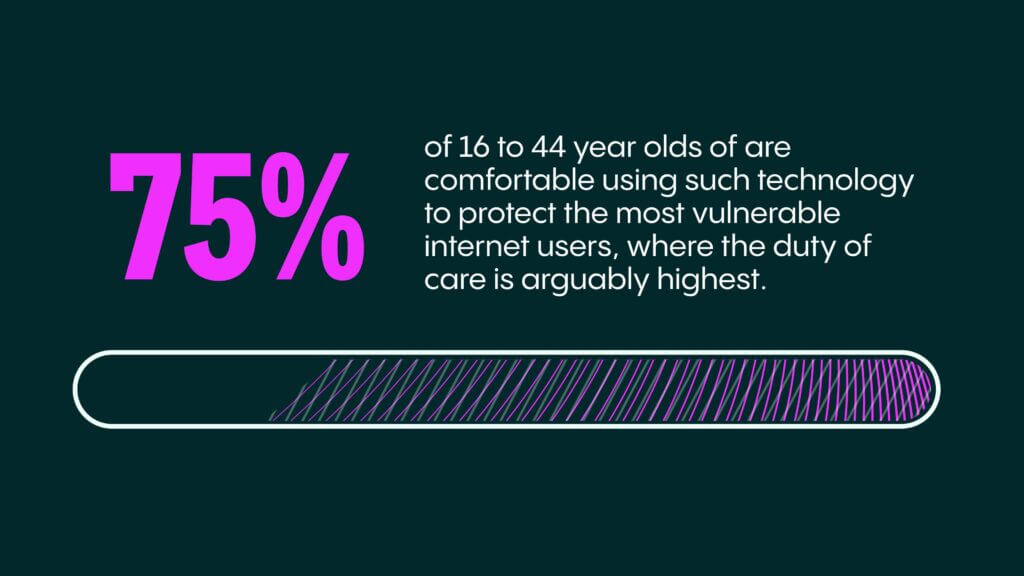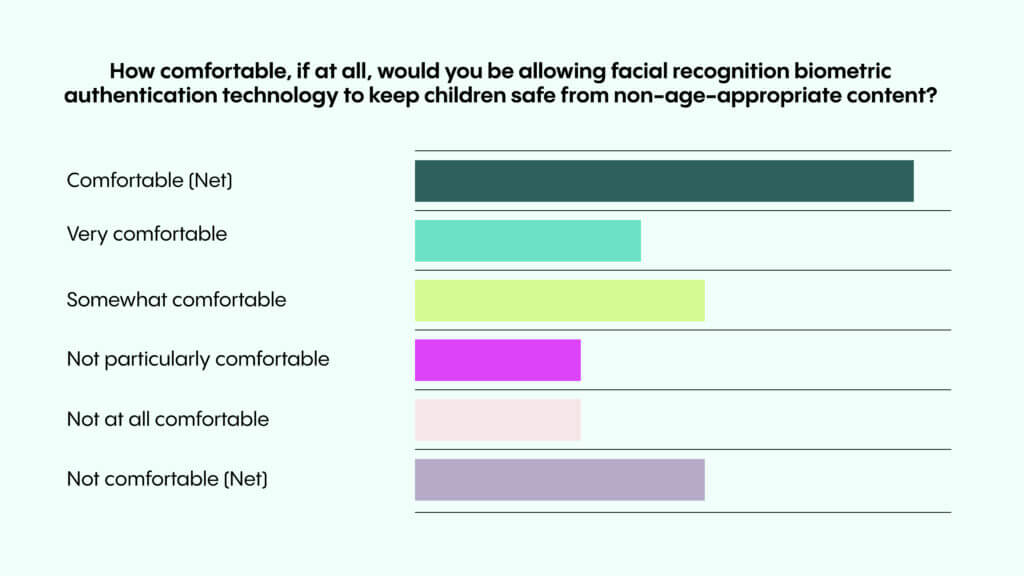IDV Article
Safeguarding children in the online gaming world: Trends and data insights for 2025
As online gaming becomes a central part of children’s digital lives, it brings both exciting opportunities and critical challenges. Gaming platforms offer entertainment and connection but can also expose young players to risks like fraud, cyberbullying, and inappropriate content.
As online gaming increasingly becomes a core aspect of children’s digital experiences, it presents unique opportunities and notable challenges. Gaming platforms are not only spaces for fun and engagement, but also potential arenas for cyber threats, such as fraud, cyberbullying, and exposure to harmful content.
The Veriff Fraud Index is a survey of end-users, assessing their experiences with online fraud and their interest in fraud-prevention measures. Veriff’s report examines fraud prevention and security by surveying 1,000 consumers aged 16+ in the US and the UK, analyzing their experiences and challenges in online spaces.
In this blog, we explore important findings from the survey that could prove advantageous for enhancing children’s safety in the online gaming industry.
Tackling key challenges for online gaming platforms:
Combating fraud and enhancing security
Fraud prevention remains a pressing challenge in gaming. With in-game scams, phishing attacks, and other forms of online fraud, platforms need robust security solutions. AI-powered fraud detection can monitor and block suspicious activities in real-time, while behavioral biometrics ensure user authenticity, creating a more secure gaming experience and reducing the likelihood of fraud. The Veriff Fraud Index highlights that nearly 29.45% of 25-34-year-olds attribute responsibility for online safety to biometric and identity verification providers, indicating a growing expectation for platforms to leverage these technologies. Furthermore, 75% of respondents aged 16 to 44 expressed comfort with biometric authentication, such as facial recognition, to protect children from accessing non-age-appropriate content. This strong public support underscores the need for gaming platforms to adopt robust verification solutions.

Are parents accountable for their children’s online safety?
Veriff´s survey suggests two-thirds of respondents believe so. However, there’s more to consider. A notable 38.46% of respondents also hold the website, platform, or app responsible. This underscores a crucial theme: online businesses must prioritize user protection, especially for young users. Identity verification (IDV) plays a vital role here, like preventing access to age-inappropriate content.
The survey results were consistent across both countries, with more US respondents (70.46%) attributing responsibility to parents or guardians compared to those in the UK (61.6%).
Interestingly, the perceived responsibility of biometrics or IDV providers varies by age group. Overall, 13.49% believe these providers are responsible. Older participants are less inclined to see it this way, viewing it as more of a parental and governmental responsibility. However, 29.45% of 25-34 year-olds think these providers have a role.
This shared responsibility between parents, platforms, governments, and technology providers underscores the importance of biometric authentication and AI-driven solutions as vital components in creating a safer digital environment for children. Gaming platforms, in particular, must prioritize adopting these technologies to mitigate fraud risks and protect young users from accessing inappropriate content.

Discover More About Fraud Trends!
Discover key trends and data-driven insights on fraud prevention, online safety, and identity verification. Learn how businesses can protect users and ensure secure online experiences.
Adapting to evolving threats
With cyber threats becoming increasingly sophisticated, gaming platforms must remain adaptable. AI-driven security solutions, biometric authentication, and regular system updates can help anticipate and mitigate new risks like deepfakes and identity theft schemes. A proactive approach to emerging threats enhances brand reputation and ensures user safety. The Veriff Fraud Index highlights that respondents are open to advanced authentication technologies, with a significant portion comfortable using facial recognition to prevent children from accessing inappropriate content.
Investing in advanced security solutions can seem costly upfront, but it pays off by minimizing the financial and reputational damage caused by security breaches. Streamlined onboarding through biometric age verification not only ensures compliance, but also boosts operational efficiency, reducing friction in the user experience. The Veriff Fraud Index part 2 reveals that a strong majority of users are comfortable using biometric technologies, especially facial recognition, to safeguard children from non-age-appropriate content, as shown in the “Comfortable (Net)” category in the survey. While there is some hesitation, with a portion of respondents expressing discomfort, the trend points toward growing acceptance of these technologies.

In conclusion, by integrating biometric authentication and AI-driven monitoring systems, gaming platforms can not only enhance security and compliance but also improve user experience. This fosters trust and loyalty among users, while navigating the challenges posed by fraud and evolving regulatory requirements.
Actionable strategies for gaming platforms:
1. Utilize AI and biometric technologies
Implement AI-driven monitoring tools that detect suspicious activity and prevent fraudulent interactions. Biometric age verification can further ensure that only authorized users access games, enhancing safety and security.
2. Offer comprehensive parental controls
Provide parents with intuitive tools to manage their child’s gaming experience, including content filters, screen time limits, and privacy settings. This empowers parents to play a more active role in their child’s safety while fostering trust in the platform.
3. Promote digital literacy
Collaborate with schools and community organizations to educate children and parents on online safety, fraud prevention, and best practices for secure gaming interactions. Increased awareness reduces the risks of falling victim to scams or harmful content.
4. Prioritize content moderation
Employ a mix of automated and human-driven content moderation to swiftly detect and remove harmful or inappropriate content. Verified accounts for minors and safer communication channels can further enhance the user experience.
How Veriff can help
Veriff offers industry-leading identity verification solutions tailored to the unique challenges of the online gaming industry.
Kaarel Kotkas, CEO and founder of Veriff, emphasizes the importance of AI-powered fraud detection in monitoring and blocking suspicious activities in real-time. There is a growing need for robust age verification systems in digital spaces, also in sectors like online gaming, to ensure users access only age-appropriate content, thereby protecting younger audiences. These age verification and estimation technologies help protect children from adults posing as minors to access online communities meant for young users. Behavioral biometrics, like Veriff’s age estimation tool, can enhance user authenticity, providing a more secure gaming experience and lowering the risk of fraud:
Gaming platforms can more efficiently onboard new players if they can seamlessly determine which age group to put them in and, thus, which restrictions should be in place.
With Veriff’s comprehensive solutions, online gaming platforms can foster trust, enhance user safety, and stay ahead of industry challenges—all while creating a safer digital world for young gamers:
Ensure regulatory compliance: Our biometric age verification solutions help platforms comply with stringent child protection laws and regulations, building user trust and enhancing security.
Combat fraud with advanced AI solutions: Veriff’s AI-powered fraud detection systems monitor user interactions in real time, identifying and preventing fraudulent activities such as account takeovers, phishing scams, and in-game fraud.
Enhance user safety and experience: Veriff provides robust verification tools, including behavioral biometrics and advanced identity checks, to create a safer, more engaging environment for young gamers.
Adapt to emerging threats: Our solutions evolve alongside new threats, using the latest technologies to protect platforms and users from deepfakes, identity theft, and other emerging risks.
Streamline onboarding processes: Veriff’s seamless verification solutions make onboarding easier and faster, while maintaining the highest standards of security and compliance.

Gaming platforms can more efficiently onboard new players if they can seamlessly determine which age group to put them in and, thus, which restrictions should be in place.

